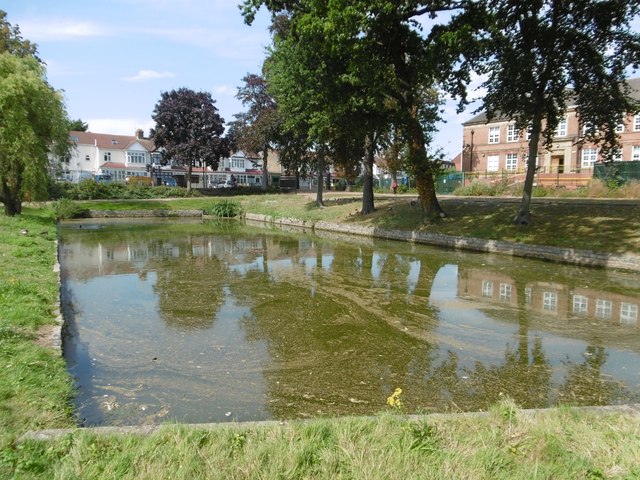The Long Water in Valentines Park
Introduction
The photograph on this page of The Long Water in Valentines Park by Marathon as part of the Geograph project.
The Geograph project started in 2005 with the aim of publishing, organising and preserving representative images for every square kilometre of Great Britain, Ireland and the Isle of Man.
There are currently over 7.5m images from over 14,400 individuals and you can help contribute to the project by visiting https://www.geograph.org.uk

Image: © Marathon Taken: 24 Aug 2016
The mansion is believed to have been originally built in 1696-7 for Elizabeth Tillotson and her family after the death of her husband, the Archbishop of Canterbury. She was a niece of Oliver Cromwell. At that time the new brick house stood in open countryside, several miles from the edge of London. In the 1720s City merchant and banker Robert Surman bought the estate and created the walled gardens, dovecote and grottoes. In the 1760s the new owner Sir Charles Raymond spent part of his fortune from the East India trade renovating Valentines, giving the house its Georgian appearance. The Long Water is likely to have been constructed along the line of an existing natural brook in the early 18th century. This was the Cran Brook after which Cranbrook Road was named. The Canal Head and grottoes date back to about 1740 - 1760. After many years of neglect they were restored in 2007 with funding from the Heritage Lottery Fund and the London Borough of Redbridge. This is the part of the Long Water nearest Cranbrook Road. It is separated from the main part of the Long Water to the east beyond the Grotto. The southern part of what is now Valentines Park was declared officially open to the public "for ever" on 16th September 1899 when it was called Central Park. The grand opening was attended by 10,000 people. At this point Central Park extended to just 47 acres. The last private resident of Valentines was Sarah Ingleby who died in 1906. The Council acquired the house in 1912 and added it to the rest of Central Park, at which time the name of the whole park was changed to Valentines Park. Since then the mansion has been a home to wartime refugees, a hospital, a public health centre and a Council housing department. After standing empty for 15 years, Valentines was opened to the public in 2009. It is Grade II* listed. With further purchases the park was gradually extended to its present size of 136 acres and renamed in the early 20th century. See https://en.wikipedia.org/wiki/Valentines_Park for more information.

